Helping Pauline live a lively and colourful life
As much as she loves to be at home drawing, painting and sewing, artist Pauline Coates is a people person and needs to get out of the house. This became increasingly difficult after she had to give up driving and suffered several falls.
For the last five months, Harbour Hospice volunteer Linley Erskine (pictured above left) has kept Pauline connected to her community by visiting regularly and taking her to local cafes, art exhibitions, the library and supermarket.
With her eye fixed on celebrating her 90th birthday in April, Pauline values her contact with people at least as highly as the cancer treatments that are prolonging her life.
“I do love people,” she says, then adds with a mischievous smile, “even the ones I hate, I quite like.”
Pauline’s tongue-in-cheek comment contains a kernel of wisdom. Other people can sometimes be irritating but they are also our greatest source of comfort, and an impressive amount of psychological research underscores the importance of human connection.
Hospice nurses visit as needed, but Pauline has little concern for the medical details of her condition. What she most appreciates is Linley’s help, which allows her to enjoy being out in her community, replenish supplies for making her beautiful, highly original and often humorous artwork, and even host the occasional dinner party.
“Pauline is trying her best to live the life she’s always led,” Linley says. “Her needs aren’t just for supermarket shopping, she needs to go out for social contact and to find out what’s going on in the world.”
Before her GP put her in touch with Harbour Hospice, Pauline relied on neighbours and members of her church group to take her shopping, which was neither regular nor often enough to meet her needs.
“Without Linley, I have very little support,” Pauline says. “Linley is my confessor; we have lots of phone calls and outings.”

“My illness causes me occasional pain, but being cut off from my community is worse.”
Pauline has a son in Australia – who is also seriously ill with cancer – and a daughter who lives too far away to be able to visit often. Having emigrated from England as a newlywed, she has no other relatives in New Zealand.
Linley is new to volunteering for Hospice and says she has been surprised by the breadth of services and grateful for the support she receives from Hospice. Her volunteer coordinator responds immediately any time she messages or calls with a question, even very early in the morning, which gives her confidence to continue supporting Pauline.
“I’m not a nurse; I need that helping hand and to know that support is there when I need it,” she says.
It takes our education and volunteer team several months to adequately prepare a volunteer before they are paired with a patient.
Like all volunteers who work with patients as visitors, drivers or life-story writers, Linley completed an orientation session and a six-hour ‘toolbox’ course that provided an introduction to palliative care.
The toolbox includes modules on sensitive and respectful communication, personal boundaries and confidentiality, and teaches volunteers how to move patients safely.
Harbour Hospice organises and funds this clinical education, which is compulsory for all family volunteers, and invites them to complete further palliative care courses if they wish.
Linley has supported Pauline since October last year and says the more she gets to know her, the more she’s able to help.
“Pauline and I have had some lovely times together and I’m so appreciative that I got to know her early, before things got really tough for her,” Linley says.
By making a donation to Hospice we can continue to give patients like Pauline life-changing social support that keeps her connected with her community. To make a gift, please click on the community you wish to support.
